Does Putting a Rope on The Ground Keep Snakes Away?
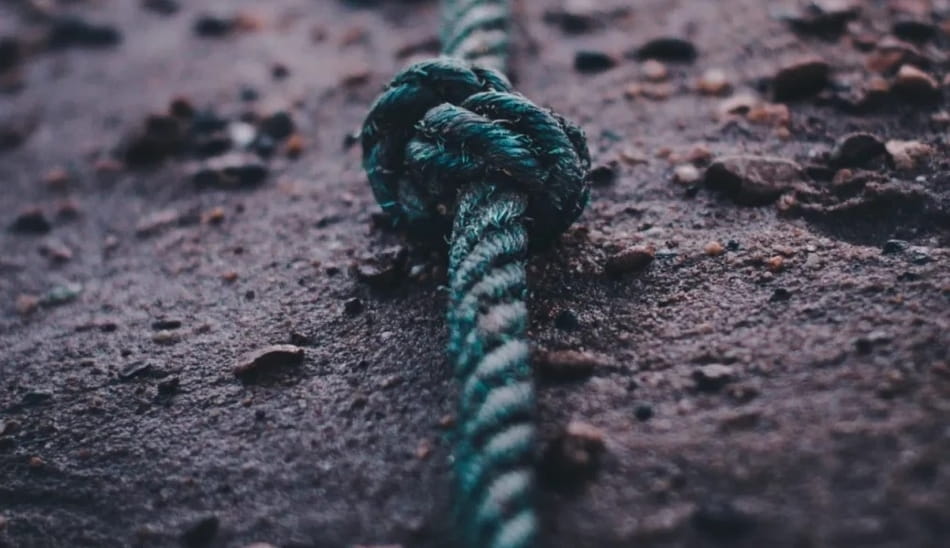
Growing up, many of us heard stories of different ways to keep snakes away. One such method was as simple as placing a rope on the ground. It may sound interesting, but when you’re out camping, any means of avoiding an encounter with these slithering creatures is worth considering.
So, the question arises: is there any truth to putting a rope on the ground, or are there better alternatives that actually work? In this article, we’ll talk about that. So, let’s start!
Does putting a rope on the ground keep snakes away? No, ropes don’t give a guarantee to keep snakes away. While the idea of a rope on the ground deterring snakes is a common myth, there’s no proof that this work. Snakes don’t have a natural fear of ropes or lines. Therefore, using a rope as a snake deterrent is not considered reliable or effective.
But don’t let this information discourage you because there are ways you can keep snakes away! Some methods work better than others.
We have delved into various myths, facts, and scientific studies on this subject. Continue reading to learn more fascinating insights on how you can truly keep these slithery creatures at a safe distance.
Table of Contents
Can Snakes Go Over a Rope?
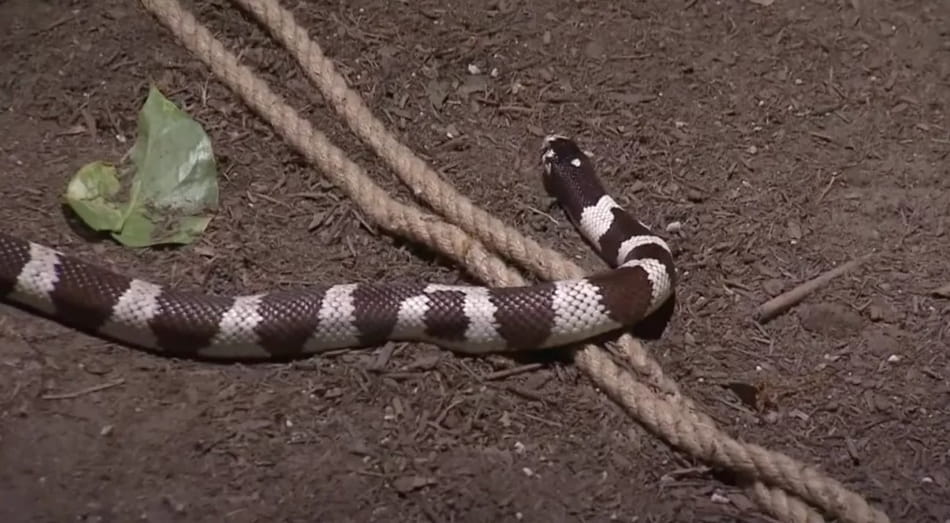
Over time, some experiments have shown that certain snakes seem hesitant to traverse a rope. Interestingly, there’s no clear evidence as to why they avoid doing so. While some snakes appear to have no issue sliding across the rope, others attempt to circumnavigate it, much like some people like to walk on flat surfaces instead of grass.
Nonetheless, when a snake finds itself encircled by a rope, it invariably slithers across it. Snakes maneuver over ropes just as they do over any other hurdle. It’s essentially the same as them gliding over any random stick during their day.
Primarily, snakes are guided by warmth and vibrations that alert them to potential risks. To them, a rope is just another non-living object in their path.
If you want more evidence, here is a great video done by MythBusters:
Here’s Why Ropes Won’t Stop Snakes
Ever been curious about how snakes navigate diverse terrains, including tree branches and walls? Understanding this, you will know that snakes can overcome almost any obstacle.
Snakes’ scale pattern and muscular activities are crucial in movement across various surfaces. Despite common misconceptions, ropes do not hinder their progression. But how is this possible?
To understand this, we should delve into the dynamics of snake locomotion. Let’s find out!
How Do Snakes Move

Snakes generally slither by bending their bodies in a serpentine motion. As a snake propels itself, its scales latch onto the surface underneath, using it as leverage to create forward motion. A snake’s belly scales play a critical role in gripping surfaces, aiding in forward movement.
Moreover, the sinuous motion assists in gliding across flat terrains while facilitating navigation over uneven elevations or assorted surface textures.
Related Article: How to Keep Bears Away While Camping? 8 Tips
So how does this pertain to ropes? Most ropes have a texture that facilitates snake scales to cling onto them. Despite ropes being uneven and potentially unstable, this texture makes it possible for snakes to navigate over them without a hitch.
If Ropes Don’t Keep Snakes Away, What Does?
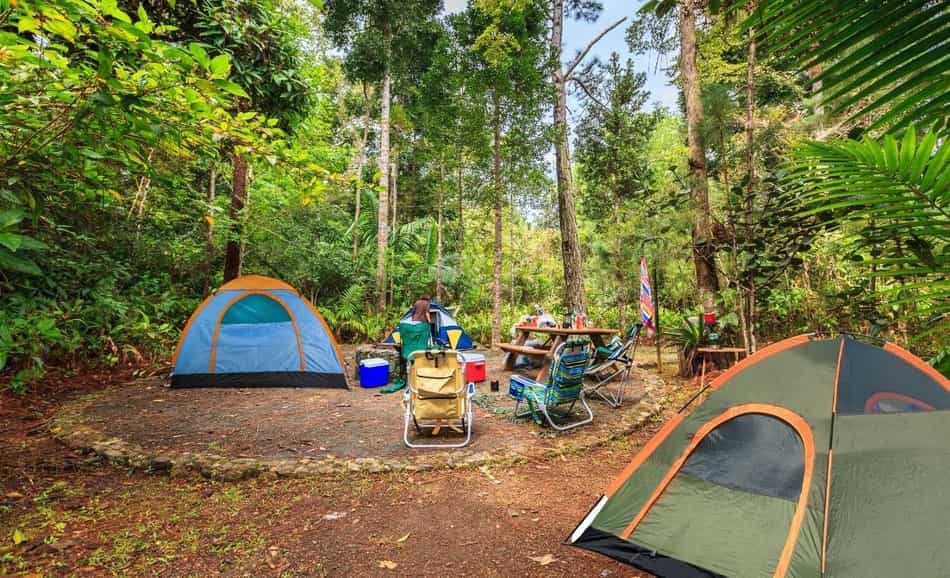
Although it has been scientifically proven that snakes can easily cross over ropes, this myth continues to live on. What could be the reason why people still believe in this myth after all this time? We don’t know!
Snakes are significantly more afraid of a human than of a rope. Staying in the camping area with a group of people is one of the most effective ways to discourage snake presence. Any snake in the vicinity will hastily retreat.
Regrettably, snakes don’t fear anything that doesn’t pose a threat to their lives. There’s no evidence that any specific snake method works consistently. The only method to truly deter snakes is by eliminating their food supply, which is an unlikely possibility.
Related Article: What Color Light Doesn’t Ruin Night Vision? Explained
Where Does This Myth About Ropes Come From?
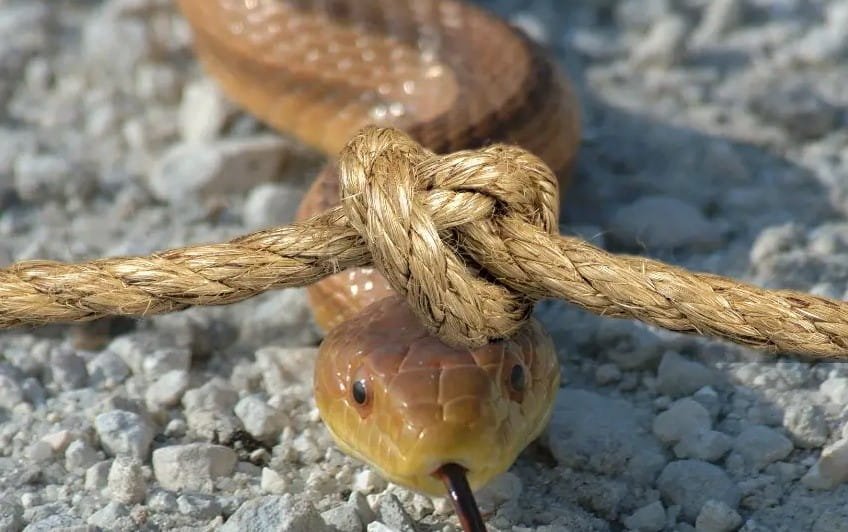
This myth’s where you think that snakes are angry predators seeking to harm you is not actually true. However, this is largely a manifestation of fear and panic.
Three key theories exist regarding the birthplace of this myth. While some theories may seem true, like most urban legends, they do not hold the truth when examined in a little more detail.
1. Social Media Influences
Some cultural factors may contribute to this myth as well. Mainstream media frequently depicts snakes as brutal hunters, giving a completely different image of these creatures in the public’s mind.
This has fostered the creation and perpetuation of unfounded beliefs and stories that have been handed down through generations and are still held true by many today.
2. Psychological Reasons
Being outdoors can bring a sense of uncertainty for some due to the possibility of running into a snake. Holding onto the idea that snakes won’t cross ropes serves as a comforting tool, providing a sense of safety and control amidst a possibly risky scenario.
However, this myth is false also, creating a false image of security. This could pose a risk as individuals might lower their vigilance or overlook essential safety measures.
3. Misinformation About Snakes
One last factor contributing to this myth is a combination of misunderstanding and lack of education regarding snakes. Let’s be honest – only a small number of people are interested in snakes, how they move, what they eat, and what they can do.
Consequently, this can foster long-standing misconceptions that withstand even when confronted with factual counterarguments.
Even Without a Rope, Snakes Aren’t Likely to Disturb You At Night
Although snakes are mostly attracted to warm places, it’s highly unlikely they’d choose to come to a place where someone else is sleeping. Even snakes have a sense of smell. They instinctively connect humans with danger. Also, there’s hardly any reason why snakes would come into a human sleeping bag.
Usually, they may seek some small animals, such as mice, when you’re away, but they will quickly get away when they catch it. Unless you carry a lot of food on your camping that attracts mice, the chances of finding a snake in a sleeping bag are slim.
From my personal experiences of countless outdoor nights, I’ve never had an issue with snakes. These creatures try to avoid people as much as possible! Furthermore, as cold-blooded animals, snakes aren’t usually a concern at night. They’re typically sound asleep, awaiting the warmth of the sun’s rays.
Related Article: How Fast Can A Bear Run? (NEVER Run From a Bear)
Will a Rope Around the Sleeping bag Protect you From Snakes?
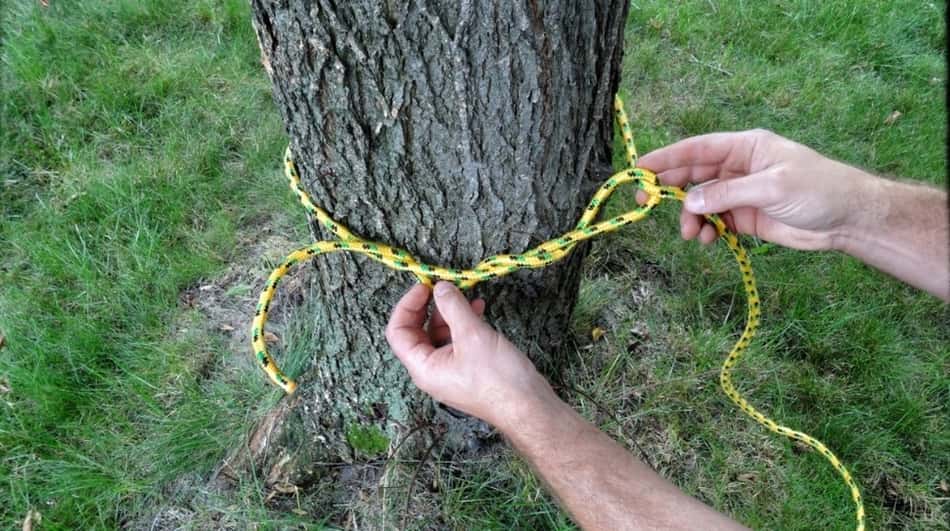
There’s an old myth that cowboys believed putting a rope around their sleeping bags would protect them against snakes. But we now know that snakes can easily cross over these ropes. So, what’s stopping them?
It’s straightforward – snakes have no desire to share your sleeping space! While ropes pose no threat to snakes, your presence could be intimidating. Snakes may be drawn to your resting spot if you are close to some animals or insects which form part of their diet.
As long as you remain calm and snakes do not perceive you as a threat, they will for sure leave you alone. Guided by their natural instincts for feeding and survival, snakes are not out to harm you. If the idea of encountering a snake scares you, there are other, better products available to help deter them.
If you want to avoid snakes outdoors, be sure to watch this video:
What To Do If You Come Across a Snake
If you find yourself in a situation where you are close to a snake, it’s crucial to stay cool and silent. Gradually retreat without giving your back to the snake.
If you’re in nature, allow the snake to leave first before you proceed with your journey. If you’re on your own property, consider contacting a certified wildlife expert who can securely relocate the snake.
FAQ: People Also Ask
What do snakes hate most?
Just like a variety of other reptiles, insects, mammals, and even us humans, snakes, too, have certain odors that they find unpleasant. Some of these unfavorable scents are from onions, garlic, lime, cloves, and cinnamon. We can discourage their presence by using essential oils derived from these ingredients in places where snakes often appear.
What can you put around your property to keep snakes away?
The best thing to put to keep snakes away is Ammonia Repellent. Snakes are known for their heightened sense of smell, and they find the scent of ammonia particularly unpleasant.
Spraying this around the borders of your property can serve as an effective snake deterrent. Epsom Salt: Another effective method is to scatter Epsom salt around your home or garden, as it emits a powerful smell that snakes would prefer to steer clear of.
What makes snakes afraid of?
Animals like foxes and raccoons are natural enemies of snakes. Even guinea hens, turkeys, pigs, and cats can contribute to keeping snakes at bay. If foxes live in your area, getting fox urine as a repellent can be highly effective when distributed around your premises.
Final Thoughts
To sum it up, it’s important to remember that snakes generally, want nothing to do with humans. Unless provoked, they won’t harm you. These creatures are instinctively driven to hunt, eat, and pursue their prey, and humans don’t fit into their diet.
If you’re out camping, some of your picnic items might get their curiosity, but they’re mostly harmless. The best course of action is to remain calm or consider investing in products specifically designed to keep snakes away.
Additionally, understanding snake behavior and its importance in maintaining a balanced ecosystem can help us coexist without unnecessary fear. While precautions are necessary, particularly in snake-prone areas, remember that our goal should be to respect these creatures and their space rather than causing harm or disturbance.
